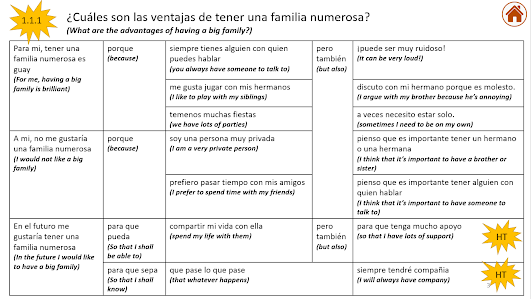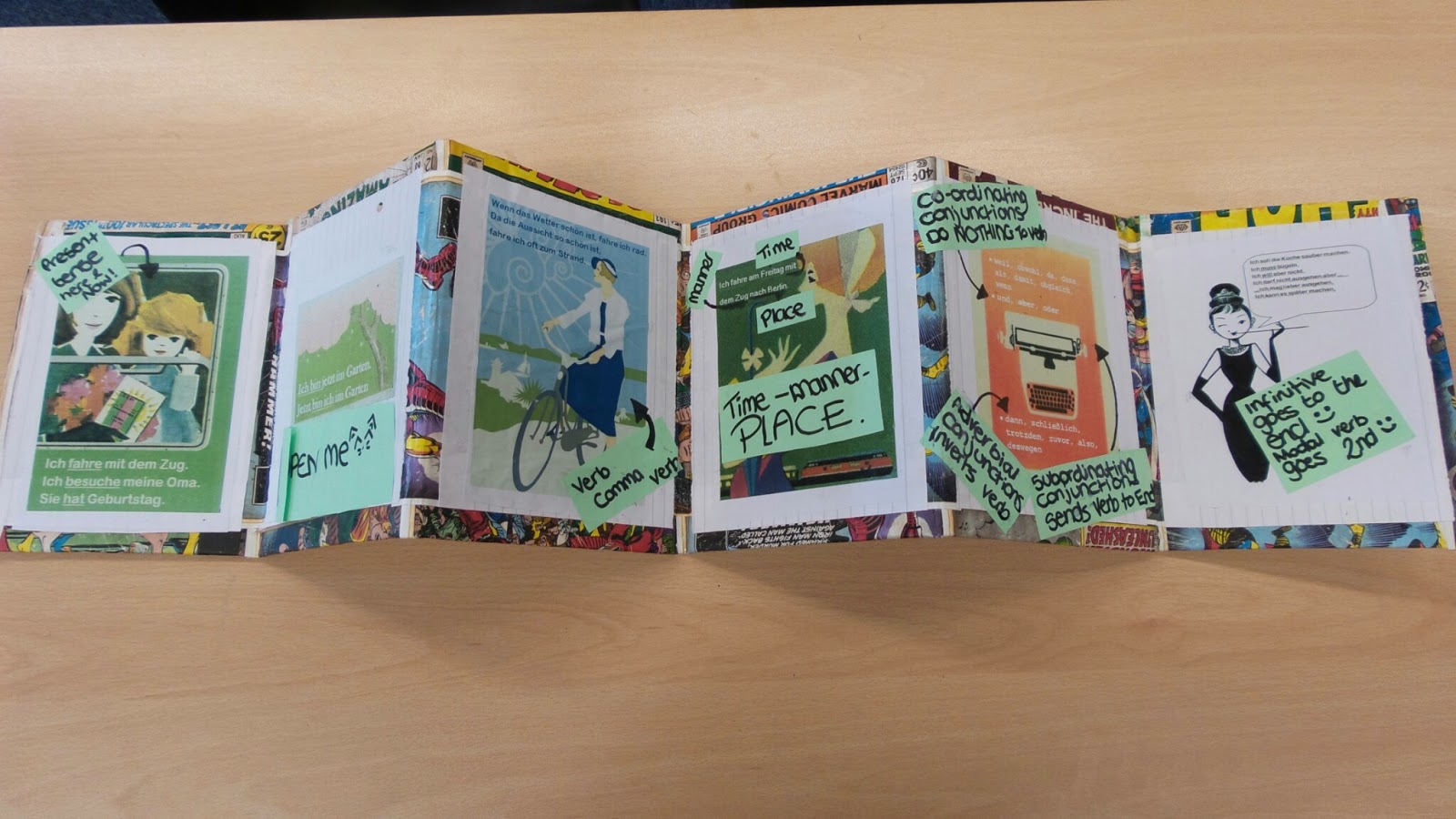
In the mad scramble to prepare our pupils for their speaking exam this year, I'm sure we've all felt like we are going to lose some (or ourselves)! I have made a booklet that will help them to write their own independent answers for questions based on the AQA specification. This should help them to work on their own at home and give them more control over the content of their speaking answers and also help them to prepare for their writing. I've popped it onto TES for £3.50. I hope you find it helpful and as stress-relieving for you and your pupils as I have. Here's an example of the sentence-builder pages. I have written two questions and answers for each topic in each theme, so there are actually 49 questions with answers like the one below. Here's the link to the resource on my TES shop: https://www.tes.com/teaching-resource/-12661978




